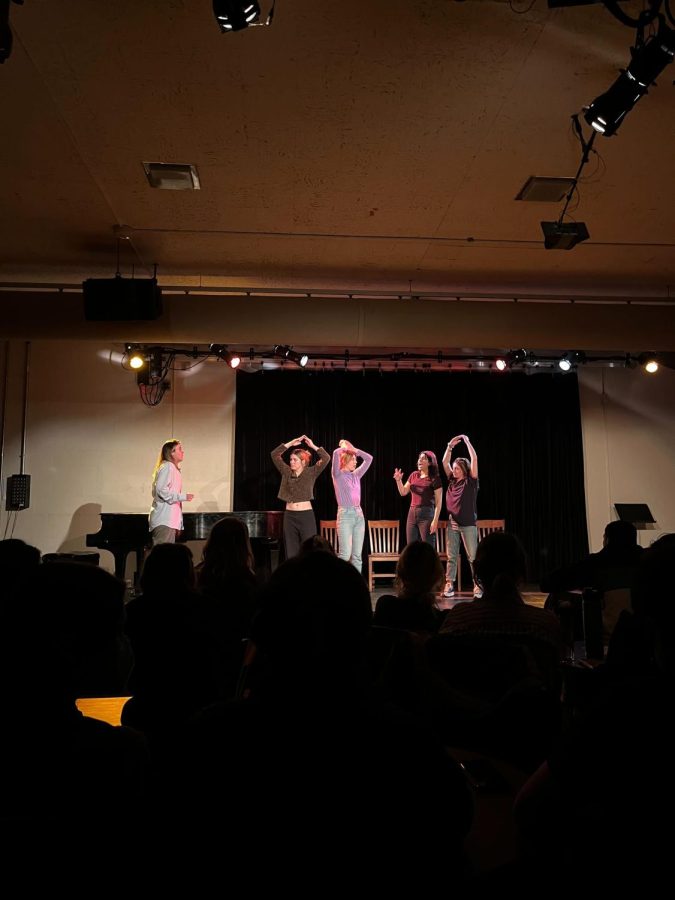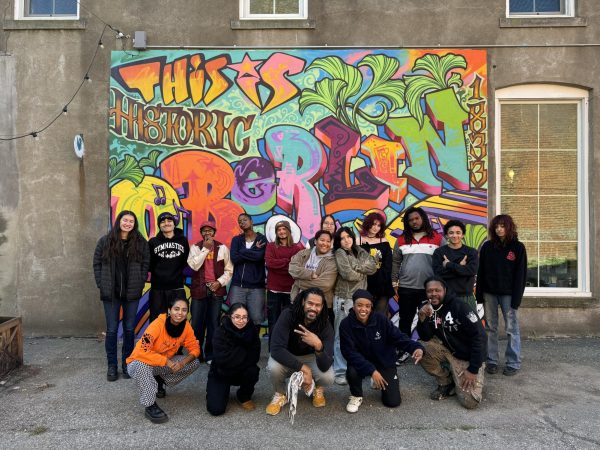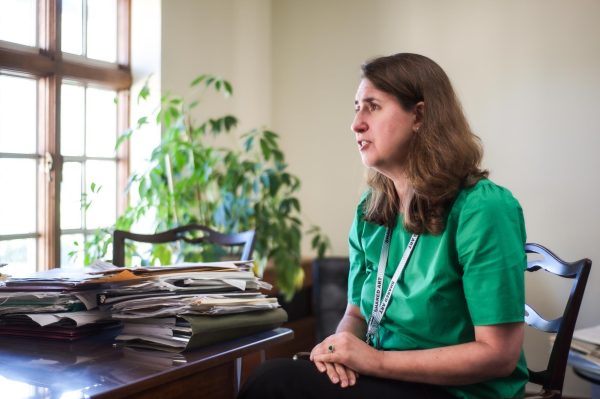Oberlin Comedy Scene Giggles Through Improv Conference
The Oberlin College Improv Conference hosted amateur and professional troupes fora. weekend of performances and workshops.
The Oberlin College Improv Conference — one of Oberlin’s largest annual comedy events — made its long-awaited return to campus last weekend. The conference was organized by students in Oberlin troupes, Sunshine Scouts and Kid Business, and hosted a number of amateur and professional troupes including Point of No Return, Chicken Big, and A Crazy Amazing Friendship for a weekend of exciting performances and professionally taught workshops.
OCIC has been an integral part of the Oberlin improv scene for many years, serving as a place for students and professionals to come together and collaborate. It allows students to learn from visiting troupes while making the school’s comedy scene more visible to people in the industry.
Daniel Cramer, OC ’18, former head of the Oberlin College Improv Coalition and current producer at Sony Pictures, spent his time at Oberlin working to develop OCIC into something more than just an amateur performance space.
“When I was running OCIC, it became a bit more about making sure Oberlin stayed on the map in terms of pipelines to different comedy scenes,” Cramer said. “It was about bringing people from the scene to the school and seeing what kind of improv was being done, but also making sure that those people out in Brooklyn and Chicago knew the Oberlin kids so that when they graduated, it was a more seamless entry into the scene.”
During the COVID-19 shutdown, improv rehearsals and performances came to a halt, only starting back up again this past fall. As a result of this hiatus, the once expansive scene began to dwindle.
“We usually have a bigger group size when we’re auditioning new people,” said Lily Kohler, a College second-year and member of Sunshine Scouts. “But our group, for example, only had four people [at the beginning of this year], and Kid Business only had two.”
Additionally, the number of troupes on campus has decreased since the shutdown, with Sunshine Scouts and Kid Business being the only ones still active. However, Kohler does not believe that the scene is in bad shape.
“There was a bit of an existential panic about what would happen to improv at Oberlin, but that really didn’t last beyond auditions and callbacks,” she said. “Now that we have the full groups again, it really doesn’t feel all that different from when I was a first-year and the improv scene was bigger.”
This is a sentiment shared by Kohler’s fellow Sunshine Scouts member and treasurer of Oberlin College Comedy Coalition, College fourth-year Joey Rees-Hill.
“There’s a thriving comedy scene on campus for people to get involved with,” he said. “Obviously there’s improv stuff going on, and that’s what I participate in most and know best, but there’s also Shit Pit, which is an informal stand-up night that happens sometimes, and there’s Good Talk.”
This confidence in the stability of comedy at Oberlin, and of improv specifically, partly comes from its members’ passion for the art form. According to Kohler, improv is at its best when the group functions as one unit.
“What makes improv really special is that it requires you to make close emotional bonds with the people in your group, because in order to be funny together, you have to establish a relationship and build off of that to find the comedy,” she said. “And it’s not that that’s not required in other forms of comedy, but I think with improv especially, it’s essential.”
When this group dynamic is achieved, Cramer feels that live improv is a very powerful experience, perhaps contrary to some people’s assumptions about the spontaneity of the artform.
“A lot of people see improv and they go, ‘Why didn’t they just write it and memorize it and perform it? It would’ve been higher quality,’” he said. “[But] if that is the case, then they’re not doing it right. Because the thing that is so special about improv … is being present when a revelation or an epiphany happens in a room. Being present to see that light bulb go off is a really special thing. And you can’t produce that.”
At its core, Rees-Hill believes that improv’s value comes from its inherent humor.
“Something about it just tickles me,” he said. “It makes me laugh. We’re basically going on stage with no idea what’s going to happen. … I think I like the challenge of it, but it’s also just really fun when you find something that you like and you and your scene partner are playing off of each other and escalating it.”
For both Kohler and Rees-Hill, the idea of continuing to do improv after college is an exciting one, though neither has any plans to perform professionally. Still, to those who do, Cramer voiced his immense encouragement.
“We live in a time where if you’re funny online, that actually means something,” he said. “I mean, look at EJ Marcus and Ru Anderson. They went to Oberlin, and they’re making online comedy, and people love it because it’s f**king awesome. The point is, if you just open up your iPhone or your Android, and film the bit, and get good at that, that really means something.”
Comedy fans can rest assured that there will be more and more opportunities on campus to go see performances. From traditional events like Shit Pit and Good Talk to visiting acts such as comedian Patti Harrison, who performed stand-up at Finney Chapel this past Wednesday, comedy is quickly returning to the Oberlin campus, much to the delight of performers and audiences alike.




